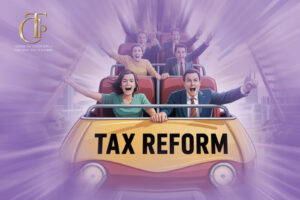
Sometime after high school, events will fall into place that will set you on a path toward adulthood. But, you do not have to wait until it is paved before setting out in your own direction. There are things that you can do now to put yourself on track.
The following tidbits can give you something to think about as you take your first steps toward post-adolescent independence:
Understand Your Credit
Your credit, and more precisely your credit score, is the gauge by which financial institutions determine whether you are worthy of their trust. It is a number that typically falls somewhere between 500 and 700, with a top credit score of 850. Credit Karma’s credit trend graph shows that most people in their 20s have a credit score that hovers somewhere around 630. Below this number, you may have difficulty obtaining a loan. To keep your credit score favorable, do not assume debt of more than 36 percent of your income, and be diligent in paying your bills. Keep in mind that it is easy to lose creditworthiness and difficult to reestablish. Cultivating healthy spending and credit habits now will serve you today and in the future.
Avoid Frivolity and Redundancy
While there is nothing wrong with saving some of your paycheck for entertainment, the sooner you begin making money-conscious decisions, the better off you’ll be. Take a look at your monthly spending to determine where you might cut costs without sacrificing quality of life. One example is your cable subscription. Most people do not need a full package, and it often makes more sense to pay only for channels that you watch regularly. As such, consider switching to a streaming media device that allows you to pick and choose your services, and then only commit to what you use. These come in many different price ranges, so do your research and keep in mind that the lowest-priced option may not be your best value long-term. This same advice can be applied toward your choice of vehicle, housing, and any other recurrent expenses.
Learn to Read the Fine Print
When it’s time to make decisions that require a signature, do not blindly agree to terms. Let’s look at renting your first apartment. Although you may be excited and ready to spread your wings, make sure to read all of the conditions before you fly through the threshold. Your lease agreement will contain everything from information on pet security deposits to rules regarding any modifications you might wish to make to the property. Failure to adhere to anything that bears your signature can result in hefty fines or legal action.
Once You Are Comfortable, Stay There
According to Investopedia, the average salary increase is just over 3 percent for 2019. Once you get your first fatter paycheck, ask yourself if you really need the additional money. If not, plan to have the excess direct-deposited into a savings account. Once you are satisfied with your quality of life, you are likely not going to do yourself any favors by spending money just because you have it. Keep in mind, further, that when you are ready to purchase a house, you will need a down payment of up to 20 percent — as well as a decent credit score. Every little bit helps, and if you wind up with more stuff than you need, you can always put it toward other important things, such as a retirement fund.
While this is not everything you need to know to become financially independent, it’s certainly a good place to start. You will pick up more tricks along the way and, hopefully, learn how to protect yourself and your growing assets.
Guest Post By: Chris Haymon
Image via Pixabay






